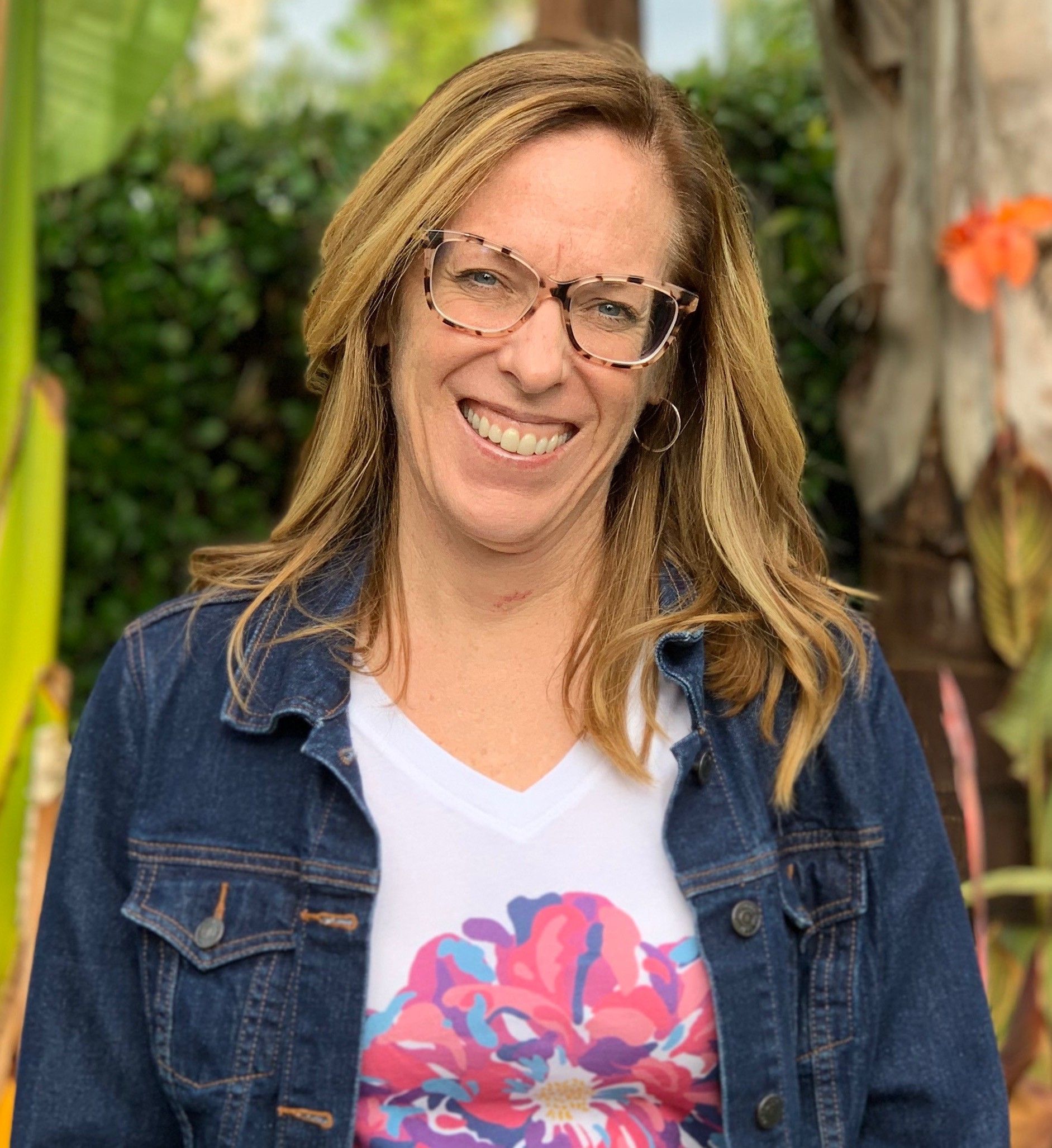
Piston Science Part Two: Bridge the Gap Between Rehab and Fitness
Piston Science Part Two: Bridge the Gap Between Rehab and Fitness |
Course Tools |
Course Description:
Piston Science Part One provided clinicians with the skills and strategies to begin to blend pelvic, musculoskeletal and return to fitness principles. Building on that foundation, Piston Science Part Two: Bridge the Gap Between Rehab and Fitness is designed to equip rehabilitation professionals with a clinical reasoning framework, empowering clinicians to think through the varied needs of fit women to help them make the leap from basic exercise to fitness at any level.
First, clinicians will learn to listen to their client to grasp the contribution of their developmental, physical, pregnancy and postpartum history as it relates to their current presentation. Then the evaluation of the demands of their fitness and their strategies and capacity to meet those demands will provide the backdrop for the organization of treatment planning and progressions. Clinicians will gain the critical capacity to break down symptomatic functional and fitness activities in order to build them back up, while monitoring and modifying the programs as they go. The use of fitness as modality for the simultaneous rehabilitation of musculoskeletal pain, central sensitization, pelvic health considerations, and return to performance is presented.
Guided by Julie Wiebe, PT this unique course is an opportunity for participants to collaboratively reason through the needs and goals of two women in real time over two days. This online version was recorded live in Toronto as the group collectively participated in patient interviewing, assessment, movement based treatment, and progressions by working backwards from the patient’s fitness goals. Join the clinical conversation from home.
Meet the patients:
Denise: 48-year-old mom of three teens and fitness trainer (HIIT, kickboxing, weight lifting with a history of body building and running) with longstanding pain, diastasis, incontinence, pelvic organ prolapse and gut health issues. Fitness Goal: American Ninja Warrior
Michelle: 36-year-old mom of an 19-month old and a CrossFitter with incontinence with sneezing, double unders and specific jumps. Fitness Goal: Dry Double Unders
Prerequisites:
Piston Science Part One: Diaphragm/Pelvic Floor Piston for Adult Populations (live or online)
Buy it online here.
Check out the live course oportunities schedule here.
Buy Part One and Part Two together as a discounted bundle for less here: Foundations + Athlete Application Bundle
Suggested supplementary online material:
Treating and Training the Female Runner (or Any Female Athlete): A detailed, deep dive into translating the foundational concepts from Piston Science Part One into assessment, clinical reasoning and treatment strategies that are demonstrated here in Piston Science Part Two.
From the Glottis to the Pelvic Floor: Making Clinical Connections (supportive info for Denise’s care)
Female Athlete: Ready for Impact and High Intensity? (supportive info for Michelle’s care)
Bundles
The Female Athlete Series:
Bundle A
Includes:
- Treating and Training the Female Runner
- Piston Science Part One (Modules 1-7)
- Piston Science Part Two
The Female Athlete Series:
Bundle B
Includes:
- Treating and Training the Female Runner
- Piston Science Part One (Modules 1-4)
- Piston Science Part Two
Foundations + Athlete Application:
Bundle A
Includes:
- Piston Science Part One (Modules 1-7)
- Piston Science Part Two
Foundations + Athlete Application:
Bundle B
Includes:
- Piston Science Part One (Modules 2-7)
- Piston Science Part Two
Course Objectives:
- At the end of this online course the participant will be able to identify three modifiable demands imposed by distance running on a female athlete.
- At the end of this online course the participant will be able to discuss three characteristics that distinguish the demands of sprinting from running.
- At the end of this online module the participant will be able to justify 3 interventions that modify running form strategy in the treatment program for a female runner with pelvic organ prolapse.
- At the end of this online course the participant will be able to evaluate transverse plane capacity for a female athlete.
- At the end of this online course the participant will be able to develop three rotational activities to introduce into the training regimen of a female athlete who regularly lifts weights only in the sagittal and frontal planes.
- At the end of this online course the participant will be able to integrate breath mechanics strategies for 3 different impact activities (ex: double unders)
- At the end of this online course the participant will be able to identify 3 signs pelvic health intolerance in a HIIT workout.
- At the end of this online course the participant will be able to develop a progression of three exercises to return an athlete to an overhead squat.
- At the end of this online course the participant will be able to develop a progression of 3 breath mechanics strategies to prepare a patient for the breath hold required in a max lift.
- By the end of this online course, the participant will be able to justify 3 intervention strategies that utilize the functions of the epiglottal complex (speech, swallow, or respiration) in a treatment program for female client with low back pain and incontinence.
- By the end of this online course the participant will be able to justify three modifications to form in a ballistic activity such as kickboxing.
Course Audience:
This course is designed to equip rehabilitation professionals with a clinical reasoning framework that will enable clinicians to think through the needs of patients with fitness goals at any level. Viewers will gain a deeper understanding of how, why and when to implement the strategies presented in Piston Science Part One to build programs that prepare women for a return to any task, fitness regimen or sport demand.
The PT will gain the theoretical basis, clinical reasoning and practical tools for breaking down symptomatic functional and fitness tasks in order to build them back up toward a client’s fitness goals. From interviewing and assessment to evidenced based treatment plan development and progressions, online participants will observe, and participate through self-reflection, the integration of pelvic, musculoskeletal, and performance health concepts in recorded treatment examples. Co-professional collaboration and referral will be stressed.
The PTA will gain insight to the theoretical basis for the assessment process, and reasoning behind the POC designed by the therapist. Observation, and participation through self-reflection, of the integration of pelvic, musculoskeletal, and performance health concepts in recorded treatment examples will assist with monitoring and modifying treatment progressions to insure continuity of care.
The Athletic Trainer/Kinesiologist (AT/Kin) will gain insight into the theoretical basis, clinical reasoning and practical tools for integration of the POC into an athletes training program. Observation, and participation through self-reflection, of the integration of pelvic, musculoskeletal, and performance health concepts in recorded treatment examples will assist with monitoring and modifying an athelete’s program to keep pelvic and musculoskeletal health in mind.
Intended Audience: This course is intended for rehabilitation professionals. The course focus on interviewing, clinical assessment and treatment planning falls under the scope of rehabilitative intervention. Other professionals enter into this for informational purposes only to be understood and applied within their state/jurisdictional scope of practice.
Course Schedule:
Welcome: Video introduction to the course components, patients and tips for maximizing the online experience.
Day One: Part One
Clinical Reasoning Framework Introduction: Designing a clinical reasoning framework to learn how, why and when to apply our arsenal of skills
Interview Denise: Subjective history. Looking for the clues and threads
Clinical Self-Reflection Lab: Where would you start your objective assessment?
Assessment and Movement Based Intervention: Denise
Clinical Self-Reflection Lab
Clinical Debrief and Q and A: Denise
Day One: Part Two
Interview Michelle: Subjective history. Looking for the clues and threads
Clinical Self-Reflection Lab: Where would you start your objective assessment?
Assessment and Movement Based Intervention: Michelle
Clinical Debrief Michelle/ Day One Q and A
Day One Self-Reflection Homework
Bonus Interview with Renee volunteer from Piston Science Part One Online
Day Two: Part One
Practitioner Q and A
Follow- Up Interview Denise: Homework review, re-evaluate response to cueing and new strategies, plan treatment
Clinical Self-Reflection Lab
Re-Assessment and Movement Based Treatment Denise: Troubleshooting, progressions and an ongoing plan
Clinical Self-Reflection Lab: Plan a progression/regression
Clinical Debrief Denise/Q and A
Day Two: Part Two
Follow-Up Interview Michelle: Homework review, re-evaluate response to cueing and new strategies, plan treatment
Re-assessment: Michelle
Clinical Self-Reflection Lab
Movement Based Intervention Michelle: Troubleshooting, progressions and an ongoing plan
Self-Reflection Opportunity/Lab: Plan a progression/regression
Clinical Debrief Michelle/Q and A
Final Thoughts
Epilogue/Bonus Material
Epilogue: Michelle
Epilogue: Denise (45 min Remote session with Michaela Zettel, PT and Denise
Bonus Clinical Footnotes: Piston Science after Dark
I need a Certificate of Completion
Once all course modules are marked as complete you will receive a course completion certificate through Teachable. You must go through each module along with taking and achieving a minimum score of 70% on the post-course test. There is also a module to complete a post-course evaluation. We would appreciate you filling it out and value your feedback!
Is the course eligible for CEU's?
At this time the course is not pre-approved for CEU credit.
Computer Compatibility Needs
This course is hosted on the teachable.com online streaming service designed to handle any system setup. So if you have a computer and an internet connection you should have access without issue. If you have issues with a slower bandwidth connection then you can change the video settings to a lower quality to help improve any loading issues.
Get the newsletters
Don't wanna miss a blog or event update, new product announcement, or special subscriber discounts? Join our newsletters here:
Your Instructor

Julie Wiebe, PT, DPT (she/her) has over 29 years of clinical experience in Sports Medicine and Pelvic Health, specializing in pelvic, pregnancy, postpartum, and performance health for fit and athletic populations. Her passion is to return active patients to fitness and sport after injury and pregnancy and equip professionals to do the same. Dr. Wiebe’s pioneering approach to optimize pelvic health integratively through movement and fitness has been successfully incorporated into a variety of populations by medical, rehab, and fitness professionals (ortho/sports, pelvic health, neurology, and pediatrics). She is a dedicated educator and internationally sought-after speaker, delivering evidenced-based professional development lectures, curriculum, and coursework at clinics, academic institutions, and conferences. A published author, her research interests focus on the interplay of pelvic health and athleticism to inform screening tools and multifactorial intervention strategies. Dr. Wiebe provides collaborative care to fit and athletic populations through remote performance health consults, telehealth, and her clinical practice in Los Angeles.
Course Curriculum
-
StartDenise Intake Form and Videos (1:52)
-
StartInterview: Denise (69:09)
-
StartClinical Self-Reflection Lab Prompt: Interview
-
StartAssessment and Movement Based Intervention: Denise (86:04)
-
StartClinical Self-Reflection Lab Prompts: Assessment and Movement Based Intervention
-
StartClinical Debrief: Denise and Q and A (12:49)
-
StartDay One Written Homework Instructions for Denise
